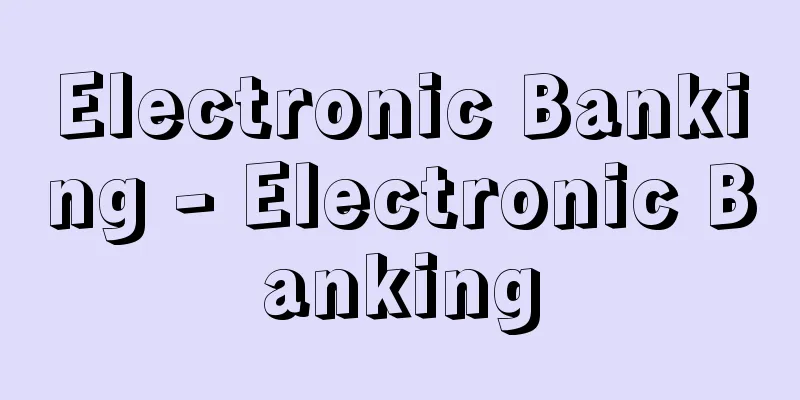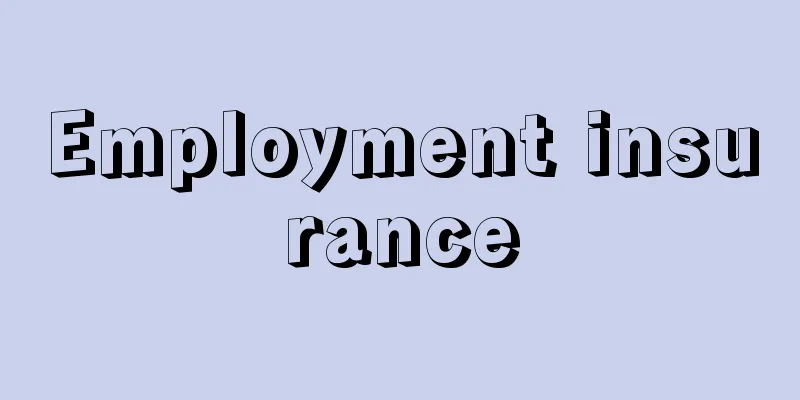Electronic Banking - Electronic Banking

|
Banking services that incorporate electronics and communication technologies such as computers into the overall banking business. There are two types of banking: firm banking, which connects the bank's computers and the company's computers via a data communication network, and enables the sending of deposit and withdrawal notifications, direct transfer data from companies, provision of various financial information, and fund management between the head office and branches of the same company; and home banking, which connects the bank's computers and home computers via a data communication network, and enables users to check balances and deposits and withdrawals, give transfer instructions, and obtain various information from the comfort of their own homes. When it first appeared, it was used by connecting a dedicated terminal to a telephone line and directly connecting to the bank's computer center, but now that the Internet has become explosively popular, it is mainly used by installing dedicated software or a web browser on a PC and using it via the Internet, and the term Internet banking (IB) is used. In addition, mobile banking, a banking transaction service that uses the Internet browsing function of a mobile phone, is also becoming popular, and these are all referred to as Internet banking in a broad sense. In recent years, when the term "electronic banking" is used in contrast to net banking, it often refers only to services that use traditional dedicated terminals. However, since around 2013, there has been a sharp increase in cases in Japan where passwords have been stolen through viruses and other methods, resulting in fraudulent transfers. The total damage from fraudulent online banking transfers in 2013 is said to have been around 1.4 billion yen. There have been frequent cases of corporate accounts being targeted as well as personal accounts, and as the methods have become increasingly sophisticated, banks are urging caution. Comprehensive measures against online financial crimes are needed. →Computer-related crimes→Related topics Two-way communication | Telephone banking | Electronic money Source : Heibonsha Encyclopedia About MyPedia Information |
|
コンピューターなどのエレクトロニクス技術と通信技術を銀行業務全体に取り入れて行う銀行サービスのこと。銀行のコンピューターと企業のコンピューターをデータ通信網で結び,預金の入出金通知や企業からの振込データの直送,各種金融情報の提供,同一企業の本支店間の資金管理などを可能にするファーム・バンキングと,銀行のコンピューターと家庭のコンピューターをデータ通信網で結び,利用者が家庭にいながら残高・入出金の照会や振込の指示,各種情報の入手などを可能にするホーム・バンキングがある。登場した当初は,電話回線に専用の端末をつなぎ,銀行の計算機センターに直接接続して利用するという形態を取っていたが,インターネットが爆発的に普及した現在では専用のソフトやWebブラウザをパソコンに導入してインターネット経由で利用する形態が主流となりインターネットバンキング(IB)という言葉が使われている。さらに携帯電話のインターネット閲覧機能を利用した銀行取引サービスであるモバイルバンキングも普及しつつあり,これらもふくめ広義のインターネットバンキングと呼ばれる。近年ではネットバンキングと対比する意味で〈エレクトロニックバンキング〉と呼ぶ場合には,旧来の専用端末を利用したサービスだけを指すことが多い。しかし2013年ごろから日本でもウィルスなどによってパスワードを盗まれ不正送金される事件が急増している。2013年のネットバンキング不正送金の被害総額は約14億円といわれる。個人だけでなく法人の口座も狙われるケースも頻発しており,手口が非常に巧妙化していることから各銀行は注意を呼びかけている。ネットによる金融犯罪への総合的対策が望まれている。→コンピューター関連犯罪 →関連項目双方向通信|テレホン・バンキング|電子マネー 出典 株式会社平凡社百科事典マイペディアについて 情報 |
Recommend
Roughbush - Roughbush
...It is also used for dyeing, dyeing it grayish-...
Jean Siberius
Finnish composer. Born in Hämeenlinna on December...
Paeonia japonica (English spelling)
…[Hiroshi Aramata]. … *Some of the terminology th...
Six Laws - Roppo
〘Noun〙 [1] ( Rokuhafu )① Six standards for the cre...
Mendes, M.
…The main composers of the 16th century were the ...
Aias; Ajax
A character from Greek mythology. (1) Ajax the Gre...
Hiroshi Hasegawa
Year of death: Tempo 9.11.20 (1839.1.5) Year of bi...
Capitis dolores (English spelling)
… A headache is a symptom of the brain or meninge...
Jodojin - Jodojin
Also known as the Mountaintop Cave Man. A group of...
Gabriel reaction - Gabriel reaction
...A general term for compounds in which the hydr...
Untitled poem from Japan - Honcho Mudaisi
A collection of Chinese poetry from the late Heia...
Safaniya‐Khafji Oil Field - Safaniya‐Khafji Oil Field
An oil field in Saudi Arabia located in the northw...
Ibn 'Asākir
1105‐76 Arab historian. Born into the prestigious ...
Rupert
A military leader of the Royalists during the Puri...
Thunder Beast - Raiju
〘Noun〙 An imaginary monster. It is said to fall to...









